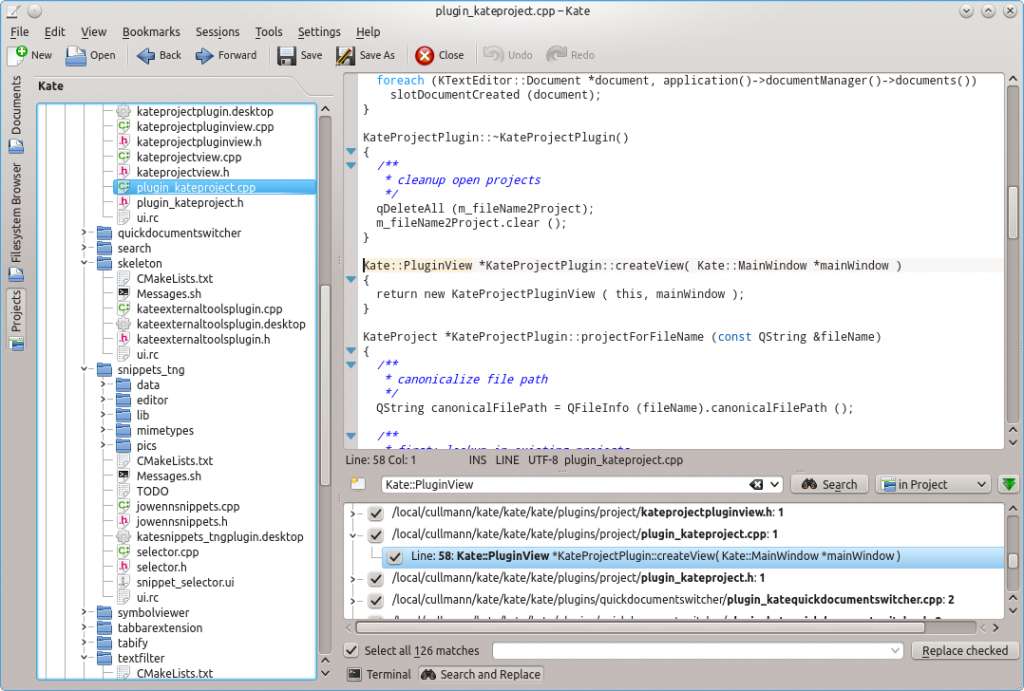Project Management, Take Three
After bit more playing around with the project plugin, I did get aware that I am even to lazy to open project files. Normally if I need to fix something or add new features, I just go to the directory and open the source or build system files I need to work on. Therefore the project plugin now just watches which files you open and will load the corresponding project on the fly for you ;) (instead of naming your project, you create a .kateproject hidden file in the toplevel project dir, just like Git would do it with its .git directory)
Next issue that arised: even with the simple pattern syntax like:
"files": [ { "directory": "kate", "filters": ["*.cpp", "*.h", "*.ui", "CMakeLists.txt", "Find*.cmake"], "recursive": 1 } ]it is hard to enumerate all files in the kate.git, as we have .py files, .xml files, .desktop files, .sh files and so on.
As I started here locally to add more and more extensions, I got the impression that just asking Git would be an better idea, and voila:
"files": [ { "directory": "kate", "git": 1, "recursive": 1 } ]and you get recursively all files that are registered in your Git clone in the kate directory ;)
If you still have SVN, no problem, for your project this will work:
"files": [ { "directory": "kate", "svn": 1, "recursive": 1 } ]These extensions make creating your Kate project much easier I guess and avoid any battling with regular expressions to keep track of the important files.
Other improvements:
- Current file will be selected correctly in the projects view
- Search and Replace is enhanced with an “in Project” option, if the project plugin is loaded and any project active, for this a bit work was needed to allow inter-plugin communication ;)
And again, the mandatory screenshot:
